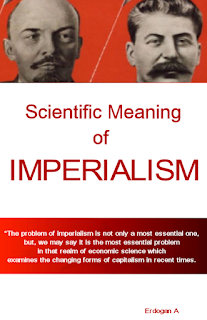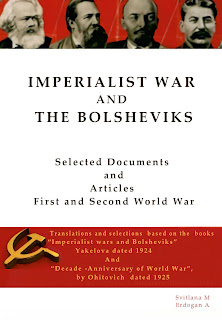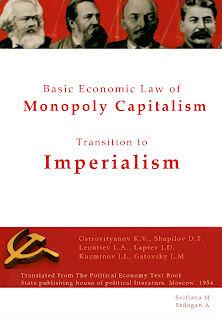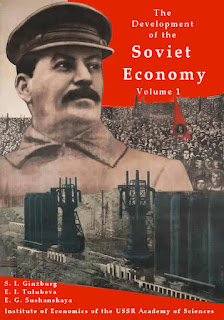THEORY AND TACTICS OF THE BOLSHEVIK PARTY - 1914 - MARCH 1917
3. THEORY AND TACTICS OF THE BOLSHEVIK PARTY
ON THE QUESTION OF WAR, PEACE AND REVOLUTION
The Bolsheviks were not mere pacifists who sighed for peace and confined themselves to the propaganda of peace, as the majority of the Left Social-Democrats did. The Bolsheviks advocated an active revolutionary struggle for peace, to the point of overthrowing the rule of the bellicose imperialist bourgeoisie. The Bolsheviks linked up the cause of peace with the cause of the victory of the proletarian revolution, holding that the surest way of ending the war and securing a just peace, a peace without annexations and indemnities, was to overthrow the rule of the imperialist bourgeoisie.
In opposition to the Menshevik and Socialist-Revolutionary renunciation of revolution and their treacherous slogan of preserving "civil peace" in time of war, the Bolsheviks advanced the slogan of "converting the imperialist war into a civil, war." This slogan meant that the labouring people, including the armed workers and peasants clad in soldiers' uniform, were to turn their weapons against their own bourgeoisie and overthrow its rule if they wanted to put an end to the war and achieve a just peace.
In opposition to the Menshevik and Socialist-Revolutionary policy of defending the bourgeois fatherland, the Bolsheviks advanced the policy of "the defeat of one's own government in the imperialist war." This meant voting against war credits, forming illegal revolutionary organizations in the armed forces, supporting fraternization among the soldiers at the front, organizing revolutionary actions of the workers and peasants against the war, and turning these actions into an uprising against one's own imperialist government.
The Bolsheviks maintained that the lesser evil for the people would be the military defeat of the tsarist government in the imperialist war, for this would facilitate the victory of the people over tsardom and the success of the struggle of the working class for emancipation from capitalist slavery and imperialist wars. Lenin held that the policy of working for the defeat of one's own imperialist government must be pursued not only by the Russian revolutionaries, but by the revolutionary parties of the working class in all the belligerent countries.
It was not to every kind of war that the Bolsheviks were opposed. They were only opposed to wars of conquest, imperialist wars. The Bolsheviks held that there are two kinds of war:
a) Just wars, wars that are not wars of conquest but wars of liberation, waged to defend the people from foreign attack and from attempt to enslave them, or to liberate the people from capitalist slavery, or, lastly, to liberate colonies and dependent countries from the yoke of imperialism; and
b) Unjust wars, wars of conquest, waged to conquer and enslave foreign countries and foreign nations.
Wars of the first kind the Bolsheviks supported. As to wars of the second kind, the Bolsheviks maintained that a resolute struggle must be waged against them to the point of revolution and the overthrow of one's own imperialist government.
Of great importance to the working class of the world was Lenin's theoretical work during the war. In the spring of 1916 Lenin wrote a book entitled Imperialism, the Highest Stage of Capitalism. In this book he showed that imperialism is the highest stage of capitalism, a stage at which it has already become transformed from "progressive" capitalism to parasitic capitalism, decaying capitalism, and that imperialism is moribund capitalism. This, of course, did not mean that capitalism would die away of itself, without a revolution of the proletariat, that it would just rot on the stalk. Lenin always taught that without a revolution of the working class capitalism cannot be overthrown. Therefore, while defining imperialism as moribund capitalism, Lenin at the same time showed that "imperialism is the eve of the social revolution of the proletariat."
Lenin showed that in the era of imperialism the capitalist yoke becomes more and more oppressive, that under imperialism the revolt of the proletariat against the foundations of capitalism grows, and that the elements of a revolutionary outbreak accumulate in capitalist countries. Lenin showed that in the era of imperialism the revolutionary crisis in the colonial and dependent countries becomes more acute, that the elements of revolt against imperialism, the elements of a war of liberation from imperialism accumulate.
Lenin showed that under imperialism the unevenness of development and the contradictions of capitalism have grown particularly acute, that the struggle for markets and fields for the export of capital, the struggle for colonies, for sources of raw material, makes periodical imperialist wars for the redivision of the world inevitable.
Lenin showed that it is just this unevenness of development of capitalism that gives rise to imperialist wars, which undermine the strength of imperialism and make it possible to break the front of imperialism at its weakest point.
From all this Lenin drew the conclusion that it was quite possible for the proletariat to break the imperialist front in one place or in several places, that the victory of Socialism was possible first in several countries or even in one country, taken singly, that the simultaneous victory of Socialism in all countries was impossible owing to the unevenness of development of capitalism, and that Socialism would be victorious first in one country or in several countries, while the others would remain bourgeois countries for some time longer.
Here is the formulation of this brilliant deduction as given by Lenin in two articles written during the imperialist war:
1 ) "Uneven economic and political development is an absolute law of capitalism. Hence, the victory of Socialism is possible first in several or even in one capitalist country, taken singly. The victorious proletariat of that country, having expropriated the capitalists and organized its own Socialist production, would stand up against the rest of the world, the capitalist world, attracting to its cause the oppressed classes of other countries. . . ." (From the article, "The United States of Europe Slogan," written in August, 1915.—Lenin, Selected Works, Vol. V, p. 141.)
2) "The development of capitalism proceeds extremely unevenly in the various countries. It cannot be otherwise under the commodity production system. From this it follows irrefutably that Socialism cannot achieve victory simultaneously in all countries. It will achieve victory first in one or several countries, while the others will remain bourgeois or pre-bourgeois for some time. This must not only create friction, but a direct striving on the part of the bourgeoisie of other countries to crush the victorious proletariat of the Socialist country. In such cases a war on our part would be a legitimate and just war. It would be a war for Socialism, for the liberation of other nations from the bourgeoisie." (From the article, "War Program of the Proletarian Revolution," written in the autumn of 1916.—Lenin, Collected Works, Russ. ed., Vol. XIX, p. 325.)
This was a new and complete theory of the Socialist revolution, a theory affirming the possibility of the victory of Socialism in separate countries, and indicating the conditions of this victory and its prospects, a theory whose fundamentals were outlined by Lenin as far back as 1905 in his pamphlet, Two Tactics of Social-Democracy in the Democratic Revolution.
This theory fundamentally differed from the view current among the Marxists in the period of pre-imperialist capitalism, when they held that the victory of Socialism in one separate country was impossible, and that it would take place simultaneously in all the civilized countries. On the basis of the facts concerning imperialist capitalism set forth in his remarkable book, Imperialism, the Highest Stage of Capitalism, Lenin displaced this view as obsolete and set forth a new theory, from which it follows that the simultaneous victory of Socialism in all countries is impossible, while the victory of Socialism in one capitalist country, taken singly, is possible.
The inestimable importance of Lenin's theory of Socialist revolution lies not only in the fact that it has enriched Marxism with a new theory and has advanced Marxism, but also in the fact that it opens up a revolutionary perspective for the proletarians of separate countries, that it unfetters their initiative in the onslaught on their own, national bourgeoisie, that it teaches them to take advantage of a war situation to organize this onslaught, and that it strengthens their faith in the victory of the proletarian revolution.
Such was the theoretical and tactical stand of the Bolsheviks on the questions of war, peace and revolution.
It was on the basis of this stand that the Bolsheviks carried on their practical work in Russia.
At the beginning of the war, in spite of severe persecution by the police, the Bolshevik members of the Duma—Badayev, Petrovsky, Mu-ranov, Samoilov and Shagov—visited a number of organizations and addressed them on the policy of the Bolsheviks towards the war and revolution. In November 1914 a conference of the Bolshevik group in the State Duma was convened to discuss policy towards the war. On the third day of the conference all present were arrested. The court sentenced the Bolshevik members of the State Duma to forfeiture of civil rights and banishment to Eastern Siberia. The tsarist government charged them with "high treason."
The picture of the activities of the Duma members unfolded in court did credit to our Party. The Bolshevik deputies conducted themselves manfully, transforming the tsarist court into a platform from which they exposed the annexationist policy of tsardom.
Quite different was the conduct of Kamenev, who was also tried in this case. Owing to his cowardice, he abjured the policy of the Bolshevik Party at the first contact with danger. Kamenev declared in court that he did not agree with the Bolsheviks on the question of the war, and to prove this he requested that the Menshevik Jordansky be summoned as witness.
The Bolsheviks worked very effectively against the War Industry Committees set up to serve the needs of war, and against the attempts of the Mensheviks to bring the workers under the influence of the imperialist bourgeoisie. It was of vital interest to the bourgeoisie to make everybody believe that the imperialist war was a people's war. During the war the bourgeoisie managed to attain considerable influence in affairs of state and set up a countrywide organization of its own known as the Unions of Zemstvos and Towns. It was necessary for the bourgeoisie to bring the workers, too, under its leadership and influence. It conceived a way to do this, namely, by forming "Workers' Groups" of the War Industry Committees. The Mensheviks jumped at this idea. It was to the advantage of the bourgeoisie to have on these War Industry Committees representatives of the workers who would urge the working class masses to increase productivity of labour in the factories producing shells, guns, rifles, cartridges and other war material. "Everything for the war, all for the war"—was the slogan of the bourgeoisie. Actually, this slogan meant "get as rich as you can on war contracts and seizures of foreign territory." The Mensheviks took an active part in this pseudo-patriotic scheme of the bourgeoisie. They helped the capitalists by conducting an intense campaign among the workers to get them to take part in the elections of the "Workers' Groups" of the War Industry Committees. The Bolsheviks were against this scheme. They advocated a boycott of the War Industry Committees and were successful in securing this boycott. But some of the workers, headed by a prominent Menshevik, Gvozdev, and an agent-provocateur, Abrosimov, did take part in the activities of the War Industry Committees. When, however, the workers' delegates met, in September 1915, for the final elections of the "Workers' Groups" of the War Industry Committees, it turned out that the majority of the delegates were opposed to participation in them. A majority of the workers' delegates adopted a trenchant resolution opposing participation in the War Industry Committees and declared that the workers had made it their aim to fight for peace and for the overthrow of tsardom.
The Bolsheviks also developed extensive activities in the army and navy. They explained to the soldiers and sailors who was to blame for the unparalleled horrors of the war and the sufferings of the people; they explained that there was only one way out for the people from the imperialist shambles, and that was revolution. The Bolsheviks formed nuclei in the army and navy, at the front and in the rear, and distributed leaflets calling for a fight against the war.
In Kronstadt, the Bolsheviks formed a "Central Collective of the Kronstadt Military Organization" which had close connections with the Petrograd Committee of the Party. A military organization of the Petrograd Party Committee was set up for work among the garrison.
In August 1916, the chief of the Petrograd Okhrana reported that "in the Kronstadt Collective, things are very well organized, conspira-torially, and its members are all taciturn and cautious people. This Collective also has representatives on shore."
At the front, the Party agitated for fraternization between the soldiers of the warring armies, emphasizing the fact that the world bourgeoisie was the enemy, and that the war could be ended only by converting the imperialist war into a civil war and turning one's weapons against one's own bourgeoisie and its government. Cases of refusal of army units to take the offensive became more and more frequent. There were already such instances in 1915, and even more in 1916.
Particularly extensive were the activities of the Bolsheviks in the armies on the Northern Front, in the Baltic provinces. At the beginning of 1917 General Ruzsky, Commander of the Army on the Northern Front, informed Headquarters that the Bolsheviks had developed intense revolutionary activities on that front.
The war wrought a profound change in the life of the peoples, in the life of the working class of the world. The fate of states, the fate of nations, the fate of the Socialist movement was at stake. The war was therefore a touchstone, a test for all parties and trends calling themselves Socialist. Would these parties and trends remain true to the cause of Socialism, to the cause of internationalism, or would they choose to betray the working class, to furl their banners and lay them at the feet of their national bourgeoisie?—that is how the question stood at the time.
The war showed that the parties of the Second International had not stood the test, that they had betrayed the working class and had surrendered their banners to the imperialist bourgeoisie of their own countries.
And these parties, which had cultivated opportunism in their midst, and which had been brought up to make concessions to the opportunists, to the nationalists, could not have acted differently.
The war showed that the Bolshevik Party was the only party which had passed the test with flying colours and had remained consistently faithful to the cause of Socialism, the cause of proletarian internationalism.
And that was to be expected : only a party of a new type, only a party fostered in the spirit of uncompromising struggle against opportunism, only a party that was free from opportunism and nationalism, only such a party could stand the great test and remain faithful to the cause of the working class, to the cause of Socialism and internationalism.
And the Bolshevik Party was such a party.


























.jpg)



















